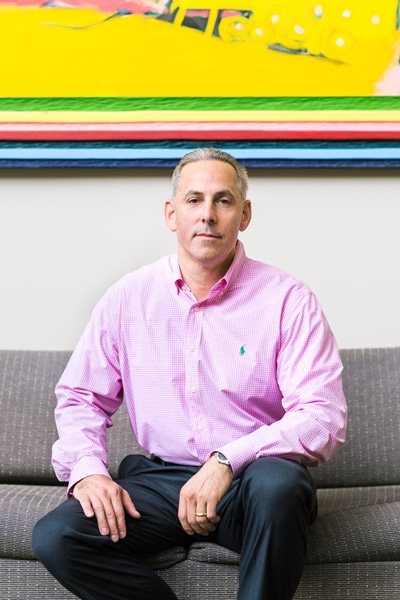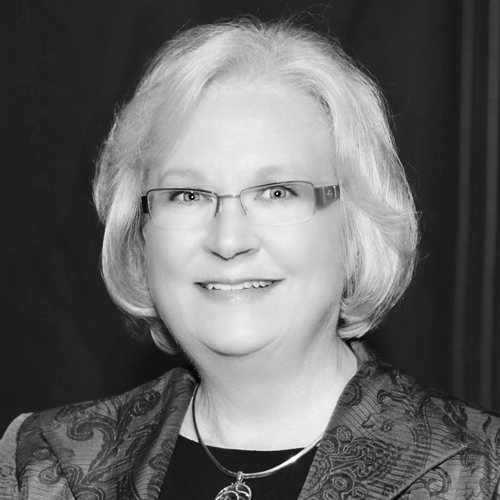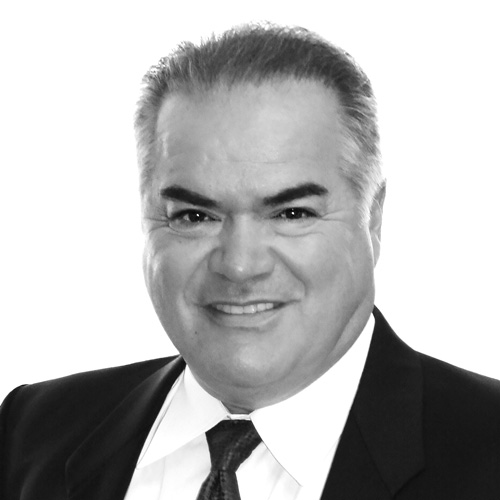Marc Fishman didn’t grow up with a passion for pharmaceuticals. He simply loved to litigate, whether facing family, friends, or perfect strangers.
“I would take a position in an argument knowing and anticipating what the other side would be,” says Fishman, vice president, associate general counsel—head of US litigation at Novo Nordisk. “I always had somewhat of an analytical mind, and that led me to being a litigator.”
A pair of family health crises led him from his position as a successful trial lawyer at the firm McCarter & English LLP to an in-house position in the pharmaceuticals industry. In 2000, his father died suddenly of a heart attack at age sixty. A father of two small children at the time, Fishman says it was a major wake up call.
“It made me recognize my own mortality,” he says. “I saw how hard he worked and realized I was on a similar path to working myself to death as a litigator at a big law firm.”

Fishman took stock of his priorities and tried to maintain a better work/life balance. But in 2004, doctors diagnosed his mother with an aggressive form of brain cancer, and Fishman took on the role of managing her day-to-day care. In addition to often driving her to chemotherapy and radiation appointments, he administered her medicines and grew to appreciate how those treatments prolonged her life, even if only for about a year.
Having experienced the loss of both of his parents at a young age, Fishman felt a responsibility to work in healthcare. Even without a scientific or medical background, he knew that he could help businesses in the field mitigate risk and enable doctors and scientists to focus on producing medicines that improve patients’ lives. So, he targeted the pharmaceutical industry for his career change.
“It felt like a natural place for me because I’d learned firsthand the impact pharmaceuticals have on people’s lives,” Fishman says. “To see how some of those products gave my mother more time to share with her family shed new light on how meaningful a career in healthcare would be.”
Fortunately, he was well-positioned for such a move. As a litigator, he had the freedom to work for companies in virtually any industry. Many types of businesses, including pharmaceutical companies, get sued or need help bringing lawsuits. However, because most corporations utilize external counsel to manage litigation matters, in-house litigation positions can be difficult to secure. In 2006, Fishman got his chance when pharmaceutical and diagnostics company Hoffmann-La Roche Inc. hired him as a senior litigation counsel at its headquarters in Nutley, New Jersey.
Fishman knew that moving into the healthcare industry would be a challenge. And transitioning from a law firm to a corporate environment was no easy task.
“In a law firm, litigation is typically very reactive,” Fishman says. “You are called upon to manage a particular issue or crisis for a client, and when that is finished, you move onto another issue for another client. You don’t often get the opportunity to learn about that company’s business, its culture, its people, and what motivates them to want to work there.”
Fishman learned all of that and more about Hoffmann-La Roche. “For me, I didn’t have a very robust background in pharmaceuticals, so I also had to learn about the supply chain, which was eye opening,” he recalls.
Similar to many outside of the pharmaceuticals industry, Fishman was only familiar with getting a prescription from the doctor and getting it filled at the pharmacy. Behind the scenes, however, a complex healthcare system involves manufacturers, wholesalers, pharmacy benefit managers, hospitals, doctors, insurers, and many others who play important roles in the supply chain. Because one of his first tasks at Hoffmann-La Roche was managing pricing litigation across the company’s entire portfolio of brands, he had to quickly become an expert in all aspects pharmaceutical.
During his time managing pricing litigation, Fishman learned how to interact with various corporate stakeholders, from scientists and physicians who educated him on the benefits and risks of medicines to sales and marketing professionals who instructed him on the commercialization strategy of the company’s products. Throughout the process, Fishman never lost sight of each player’s important role in bringing a medicine from the laboratory to the patient. The process involves close collaboration across many important functions, with each group interdependent upon the other. Fishman recognized the same teamwork is essential to the success of any organization, including a litigation department.
Fishman brought these lessons with him when he transitioned to his current role at Novo Nordisk in 2014. Here, one of his key responsibilities has been managing how the company engages with external legal counsel. The company works with firms around the world, and Fishman works on getting better performance through forming better relationships with those lawyers.
Fishman explains that in-house lawyers are often wrongly perceived as living in the corporate world, where they can shut down their computer at five, go home, and not worry about work until the next morning. Fishman calls this phenomenon the “Flinstonian Principle,” though he has no dinosaur to slide down or rock quarry to leave from. “In litigation, it doesn’t matter if you are the in-house lawyer, external partner, associate, or law clerk—we are all part of the same team with the same goal of achieving the best outcome for the business,” he says. This means sometimes working late nights and weekends to achieve success for the organization.
Although much of his current role includes strategic planning, stakeholder and talent management, budgeting, and other administrative tasks, Fishman still enjoys taking a hands-on approach to his cases. He vividly recalls managing a significant employment litigation that went to trial in Florida several years ago. Even as the client, he recalls sharing late nights with external counsel helping prepare witnesses, review testimony, and assist in trial strategy. He even remembers offering to write the closing arguments for his counsel who unexpectedly needed the entire evening to prepare a key witness for trial the next morning. Happy to oblige, Fishman spent the early hours of the morning preparing a closing argument that would be delivered to a jury less than twenty-four hours later. That case ended in a unanimous defense verdict.
For Fishman, he was pleased at the outcome but even happier with the collaboration that got them there.
Not everyone, however, subscribes to Fishman’s philosophies. “People in-house need to understand that if you want firms to go the extra mile, you need to treat them same way you’d want to be treated,” Fishman explains. “I’ve been on the other side. If you appreciate that lawyers have personal lives and truly partner with them, then they will be more likely help you on short notice.”
Fishman takes a similar approach in leading his dynamic in-house team of lawyers, paralegals, risk managers, records coordinators, IT professionals, and administrative staff. He empowers them to contribute to the group effort and take the lead in areas where they have expertise. Although he technically leads the team, he sees every member as his colleague and peer. “I don’t own the company, so nobody works for me,” Fishman says. “They all work with me.”
“I think people need to be acknowledged and recognized for what they bring to the table,” he continues. “There is a variety of talent within this team, and I try to give everyone a voice to share that knowledge with our organization.”
Fishman’s management style is certainly a draw for prospective employees, but he says that’s just part of the company’s overall culture of respect and inclusion. Another aspect of that culture is something Fishman himself has come to value in his career, particularly after his father’s death.
“Work/life balance is very important to me, and we do our best to respect people’s personal lives,” he says. “I’m proud to work for a company where both personal and professional respect for one another is embedded in the corporate culture. While patients are always at the center of everything we do, we value the contributions that each employee brings to the organization.”
To connect with his team on a personal level, Fishman holds one-on-one meetings with his team members to discover what is important to each of them. He encourages them all to take their vacation time, and he gives them the flexibility to work from home when they can.
“Sometimes, when it’s six, I will walk through the office and bang on doors to say, ‘Go home and be with your family; you don’t get paid by hour,’” he says with a laugh.
Fishman may say it in a lighthearted way, but everyone knows he’s serious. They also know there’s no use arguing. Fishman, after all, is a born litigator.
Photos: Lisa Weatherbee


